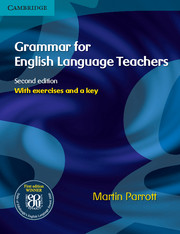Summary
Key considerations
Many learners are confused by the number of tense forms we use for expressing present time in English – in choosing the appropriate form we are obliged to make distinctions that many learners find unfamiliar and unclear. They often like teachers to introduce or draw attention to the different uses of the different forms separately and with clear rules of thumb for using them. Subsequently, learners usually like to focus on examples of how we choose and use these tenses in real conversation and text.
Most learners find that the forms of the present simple that we use to ask questions and make negative statements are particularly complex. They often continue to make mistakes long after they have understood the relevant rules. It is unrealistic to expect learners to ‘get the form of the present simple right’ before they study other tense forms.
Although we consider the present perfect in Chapter 16, some of its uses express present meanings, and learners may use a present tense in its place.
Present simple
This tense is also called the ‘simple present’.
Form
In looking at the form of the present simple tense we need to make a distinction between verbs used with a third person singular subject (e.g. he, she, it, Barbara, a book) and verbs with other subjects (e.g. I, you, Lauren and Jack, the books).
Verbs with third person singular subjects
The s or es that we add to the base form is often called ‘the third person s.’.
Verbs with other subjects
When do we use the present simple?
Main use: general actions, events and states
We use the present simple to describe general actions, events and states when we have no reason to think of them as being in any way temporary or limited in time.
For teaching purposes we sometimes break this use down into ‘repeated events’ and ‘general facts’.
Repeated events
I get up early
We can show this use diagrammatically.
We often use adverbs of frequency (e.g. always, usually) and expressions of repeated time (e.g. on Tuesday, in the summer, twice a year) with this use of the present simple. We also often focus on ‘habitual behaviour’ in presenting this use to learners.
- Type
- Chapter
- Information
- Grammar for English Language Teachers , pp. 188 - 199Publisher: Cambridge University PressPrint publication year: 2010



